
Exploring the Ancient Maze of Fes el Bali
Fes el Bali, the oldest and most enchanting part of Fes, Morocco, is a labyrinthine medina that transports you back to medieval times. A UNESCO World Heritage site, it is renowned for its intricate alleyways, historical monuments, and vibrant souks. The medina is encased within high stone walls, offering a sense of mystique as you wander through its narrow, winding streets. As you delve deeper, you'll encounter the aromatic scents of spices, leather, and food wafting through the air, mingling with the sounds of bustling markets and the occasional call to prayer from nearby mosques. Key landmarks such as the Al-Qarawiyyin University, the oldest existing and continually operating educational institution in the world, and the stunning Bou Inania Madrasa, a masterpiece of Marinid architecture, are must-see attractions. For a truly immersive experience, visit the tanneries, where you can witness the traditional process of leather-making that has remained unchanged for centuries. Don't forget to explore the numerous artisan workshops, where skilled craftsmen create beautiful ceramics, textiles, and metalwork. Dining in Fes el Bali is a treat, with an array of traditional Moroccan dishes like tagine and pastilla available at local eateries. The medina offers an unparalleled glimpse into the rich cultural tapestry of Morocco, making it a must-visit for any traveler.
Local tips in Fes el Bali
- Wear comfortable walking shoes as the medina's narrow streets are best explored on foot.
- Hire a local guide to navigate the labyrinthine alleys and learn about the rich history of Fes el Bali.
- Visit the tanneries in the morning for the best views and to see the leather-making process in full swing.
- Carry cash, as many small vendors and eateries may not accept credit cards.
- Respect local customs by dressing modestly, especially when visiting religious sites.
Exploring the Ancient Maze of Fes el Bali
Fes el Bali, the oldest and most enchanting part of Fes, Morocco, is a labyrinthine medina that transports you back to medieval times. A UNESCO World Heritage site, it is renowned for its intricate alleyways, historical monuments, and vibrant souks. The medina is encased within high stone walls, offering a sense of mystique as you wander through its narrow, winding streets. As you delve deeper, you'll encounter the aromatic scents of spices, leather, and food wafting through the air, mingling with the sounds of bustling markets and the occasional call to prayer from nearby mosques. Key landmarks such as the Al-Qarawiyyin University, the oldest existing and continually operating educational institution in the world, and the stunning Bou Inania Madrasa, a masterpiece of Marinid architecture, are must-see attractions. For a truly immersive experience, visit the tanneries, where you can witness the traditional process of leather-making that has remained unchanged for centuries. Don't forget to explore the numerous artisan workshops, where skilled craftsmen create beautiful ceramics, textiles, and metalwork. Dining in Fes el Bali is a treat, with an array of traditional Moroccan dishes like tagine and pastilla available at local eateries. The medina offers an unparalleled glimpse into the rich cultural tapestry of Morocco, making it a must-visit for any traveler.
Iconic landmarks you can’t miss
Bab Rcif
Experience the rich history and vibrant culture at Bab Rcif, Fes' iconic gateway filled with artisan shops and traditional Moroccan charm.
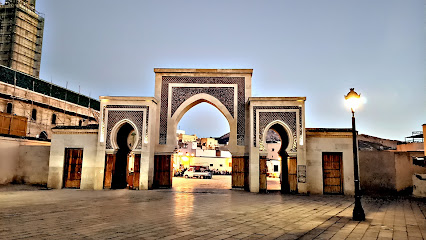
Bab Guisa
Discover the architectural beauty and vibrant atmosphere of Bab Guisa, a historical landmark in Fes El Bali that showcases Morocco’s rich cultural heritage.
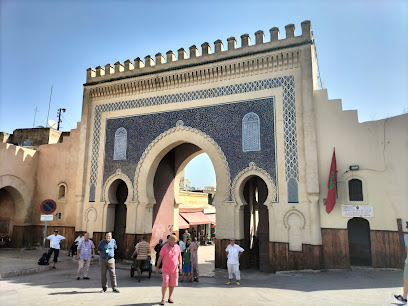
Bab Ziat
Explore the historical charm of Bab Ziat, a magnificent landmark in Fes, Morocco, showcasing the artistry and rich culture of the region.
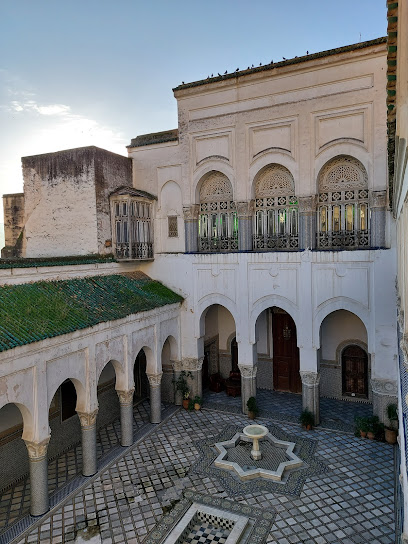
Bab Sid L'Aouad
Discover the historical gateway of Bab Sid L'Aouad in Fes, a vibrant blend of culture, architecture, and local life waiting to be explored.
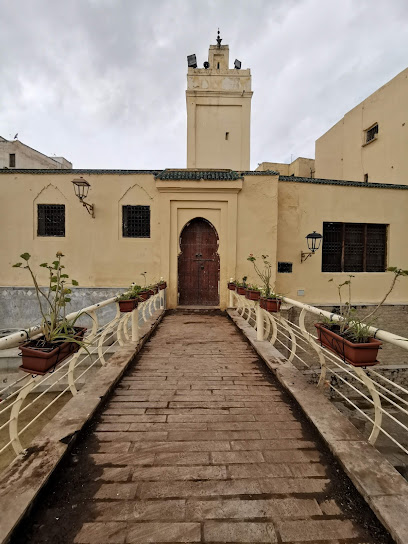
Nejjarine Fountain
Discover the enchanting Nejjarine Fountain in Fes, an exquisite representation of Moroccan craftsmanship and a serene retreat in the heart of the medina.
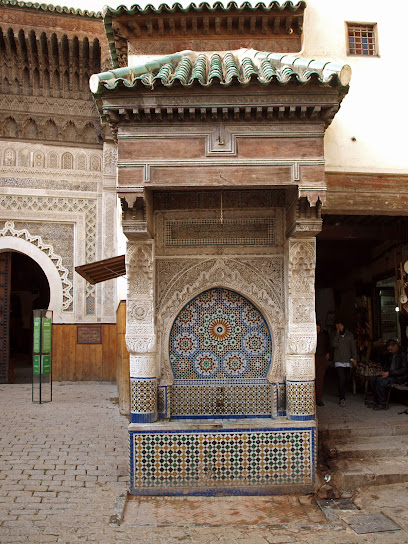
Dar al-Magana (Water Clock)
Explore the captivating Dar al-Magana, an ancient water clock in Fes, where history meets ingenuity in a mesmerizing display of Moroccan craftsmanship.
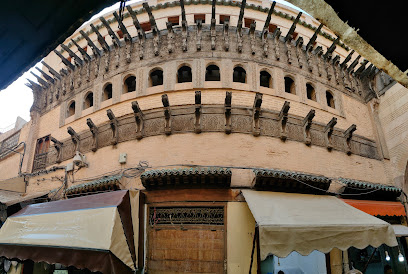
Belvédère vue sur médina
Explore breathtaking views at Belvédère Vue sur Médina in Fes, where culture and stunning scenery meet.
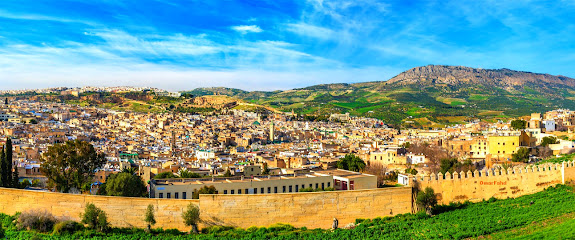
Fez Medina
Experience the enchanting beauty of Fez Medina, a UNESCO World Heritage site rich in history, culture, and stunning architecture.
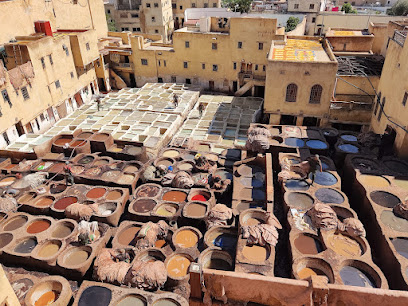
Old city wall
Explore the Old City Wall of Fes, a historical landmark that showcases the rich heritage and architectural beauty of Morocco.
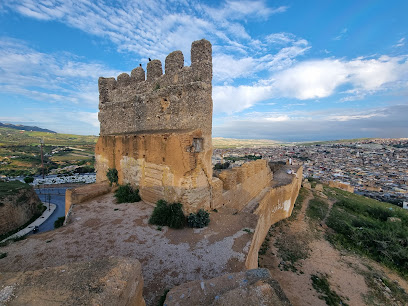
Talâa Kbira
Discover the rich cultural tapestry of Talâa Kbira, a historical landmark in Fes, where tradition meets vibrant local life and artisan craftsmanship.
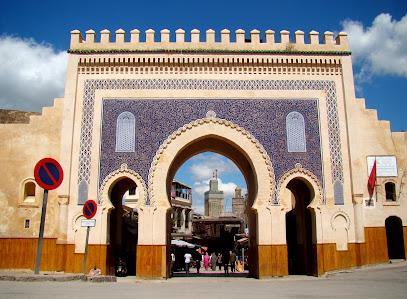
Unmissable attractions to see
Bab Rcif
Discover the breathtaking Bab Rcif, a historical gate in Fes, Morocco - a stunning entrance to the vibrant medina and a testament to cultural heritage.
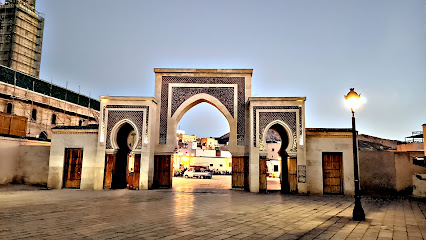
Marinid Tombs
Explore the Marinid Tombs in Fes, Morocco – a historical landmark offering stunning views and a glimpse into the rich heritage of the Marinid dynasty.
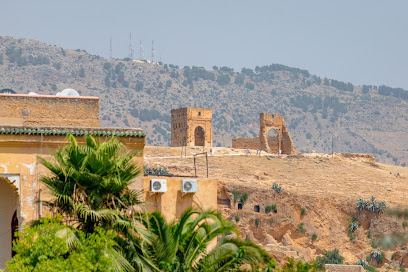
Bab Chems
Explore Bab Chems, a historical attraction in Fes, where rich heritage meets stunning architecture, creating a must-visit experience for all travelers.
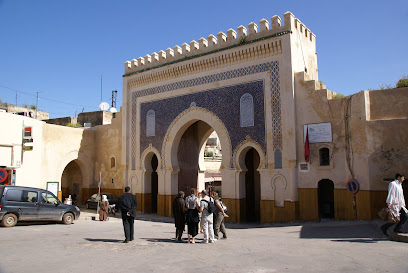
Panoramic view
Discover the stunning panoramic views of Fes, where history and breathtaking landscapes converge in a vibrant cultural experience.
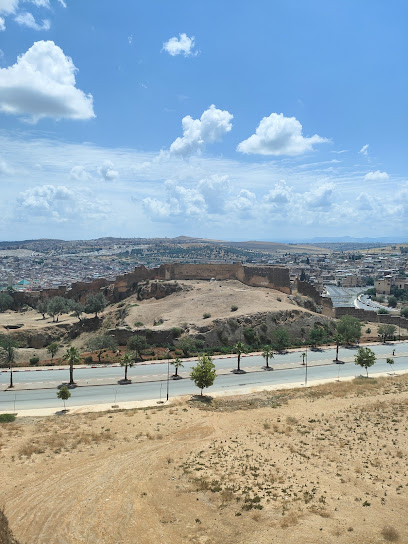
Essential places to dine
The Ruined Garden
Experience the essence of Moroccan culture at The Ruined Garden—an oasis of flavors and tranquility in the heart of Fes.
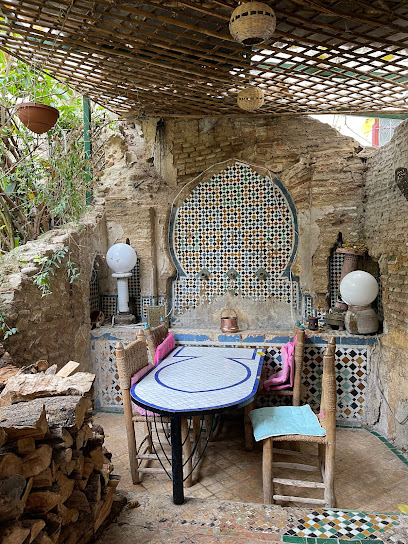
Le Tarbouche
Experience authentic Moroccan cuisine at Le Tarbouche in Fes El Bali—where every meal is a celebration of flavors.
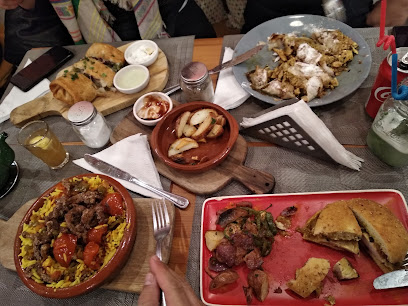
Chez Hakim
Experience authentic Moroccan cuisine at Chez Hakim, a family-friendly restaurant in the heart of Fès offering delicious dishes and warm hospitality.
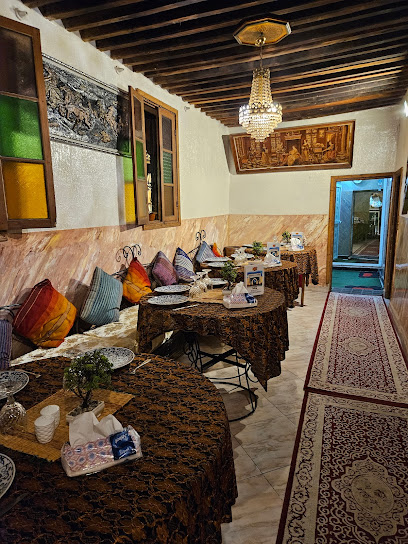
La Cave
Experience the exquisite fusion of Haute French and Moroccan flavors at La Cave, Fès' top dining destination.
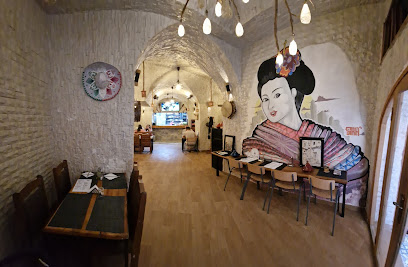
Restaurant Dar Alaoui
Discover authentic Moroccan cuisine at Restaurant Dar Alaoui in Fes - a culinary journey through flavors and traditions.
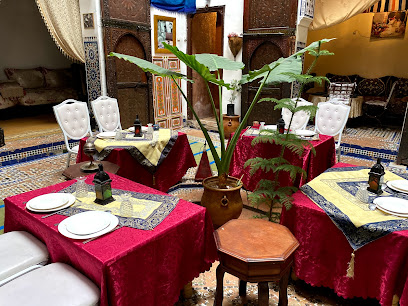
Restaurant dar khabya
Experience authentic Moroccan cuisine at Restaurant Dar Khabya in Fes – where tradition meets taste in a warm atmosphere.
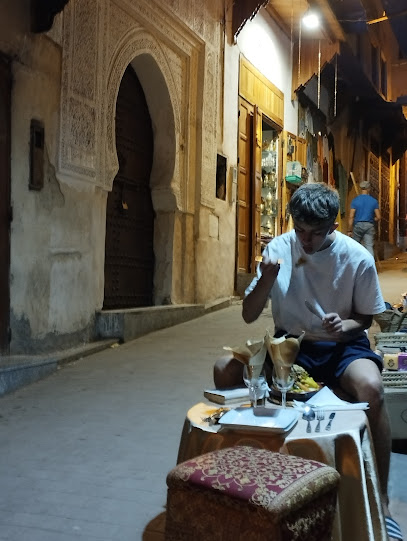
restaurant bab sahra fes
Discover authentic Moroccan cuisine at Restaurant Bab Sahra Fes - where tradition meets flavor in a captivating atmosphere.
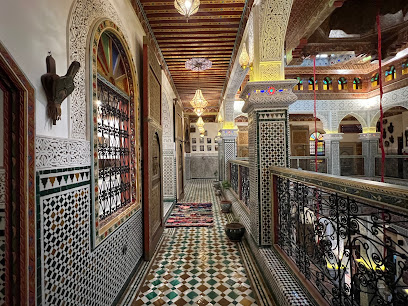
Nur
Discover exceptional Moroccan cuisine at Nur in Fes - where tradition meets innovation in every dish.
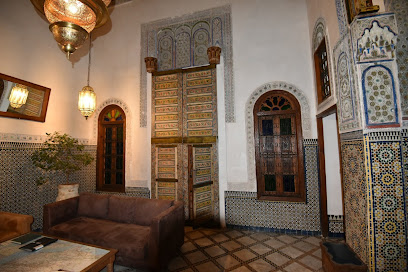
Medina Bis
Discover authentic Moroccan cuisine at Medina Bis in Fes - where tradition meets taste in every delightful dish.
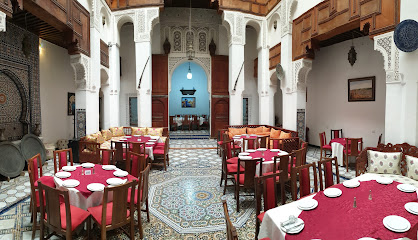
Restaurant
Discover quick bites and traditional Moroccan flavors at this must-visit fast food restaurant in Fes.
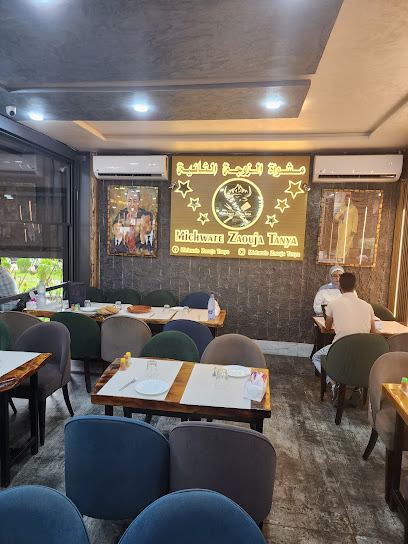
Markets, malls and hidden boutiques
Asly concept store
Explore Asly Concept Store in Fes for unique handcrafted gifts that capture the spirit of Moroccan culture and artistry.
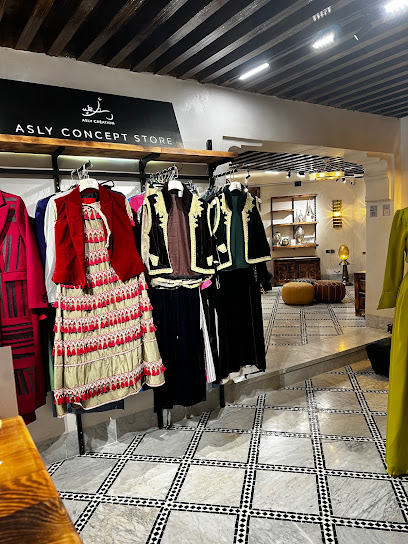
Coin Antique chez Rachid
Explore the enchanting Coin Antique chez Rachid in Fes for unique antiques and handcrafted souvenirs that embody Moroccan culture.
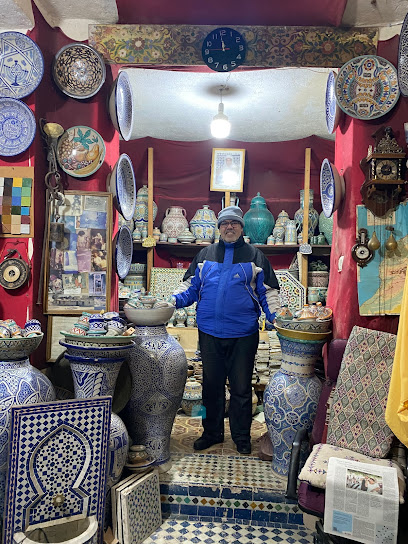
ANDALOUSSI ARTISANAT STORE (close to Nejjarine Fontaine )
Explore the Andaloussi Artisanat Store near Nejjarine Fontaine for exquisite Moroccan gifts and a taste of local craftsmanship.
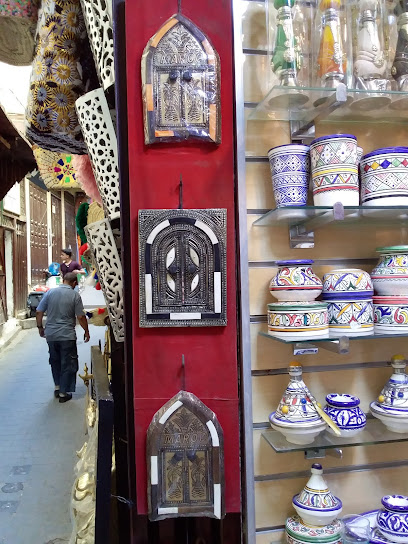
Berber Art Gallery
Explore the exquisite craftsmanship and cultural heritage at the Berber Art Gallery in Fes, a must-visit destination for art lovers.

La Grande Maison - Produits bios
Discover organic treasures and authentic Moroccan craftsmanship at La Grande Maison, the ultimate gift shop experience in the heart of Fes.
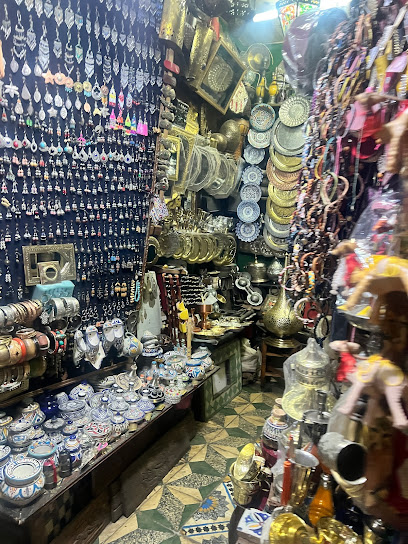
Boutique souvenirs avec prix
Explore a delightful gift shop in Fes, showcasing authentic Moroccan souvenirs and handcrafted treasures that capture the essence of local craftsmanship.

خدمات الطباعة في الرصيف باب الفتوح
Explore the charm of Fes El Bali at خدمات الطباعة في الرصيف باب الفتوح, a unique gift shop showcasing Moroccan craftsmanship and personalized treasures.
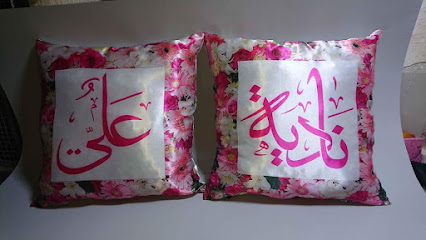
unic scarf in the world
Explore the Unic Scarf Shop in Fes for exquisite handmade scarves and authentic Moroccan craftsmanship, a perfect gift from your travels.
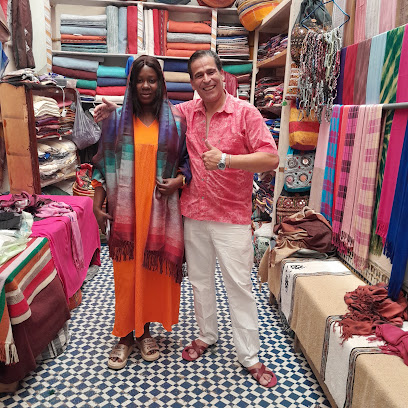
Chrabliyine
Discover the heart of Moroccan craftsmanship at Chrabliyine in Fès, where every souvenir tells a story of culture and artistry.

Shop Art
Explore authentic Moroccan craftsmanship at Shop Art in Fès, where unique home goods tell a story of rich cultural heritage.

Essential bars & hidden hideouts
Mezzanine
Experience the vibrant rooftop lounge at Mezzanine in Fes, where delicious cuisine meets stunning city views for an unforgettable night out.
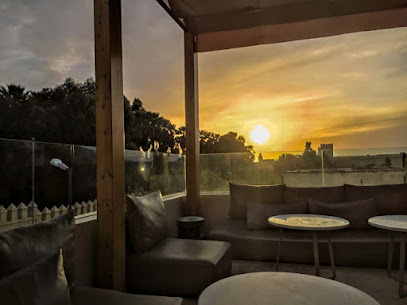
British Saloon
Experience the vibrant nightlife at British Saloon in Fes, where sports, drinks, and a lively atmosphere come together.
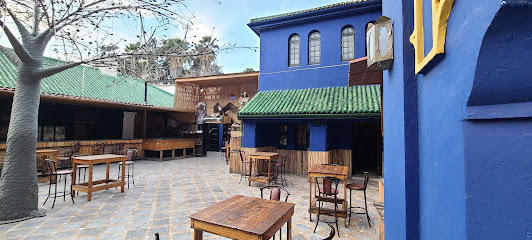
blue wall
Unwind at the Blue Wall Bar in Fes, where vibrant decor meets the warmth of Moroccan hospitality and local drinks.

Panini Batha
Discover Panini Batha, a charming bar in Fes offering a unique blend of local culture, refreshing drinks, and vibrant atmosphere for tourists.
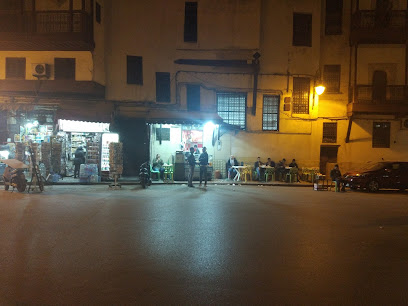
cafe Bestiyouniya
Experience the rich flavors of Moroccan grill cuisine at Cafe Bestiyouniya in Fes, a culinary haven for tourists and food lovers alike.
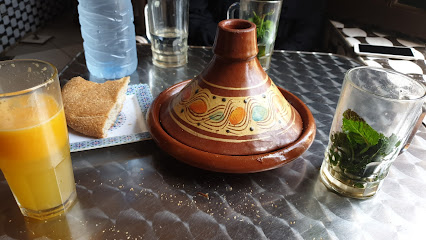
Snack CHRIF
Experience the cozy charm of Snack CHRIF in Fes, where local flavors and vibrant culture meet in a delightful bar atmosphere.
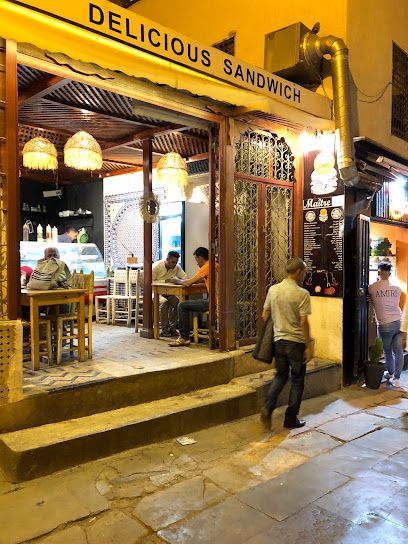
The, zuppe e altro
Discover the vibrant flavors of Morocco at The Zuppe e Altro, a culinary oasis in the heart of Fès, perfect for food lovers seeking authentic experiences.
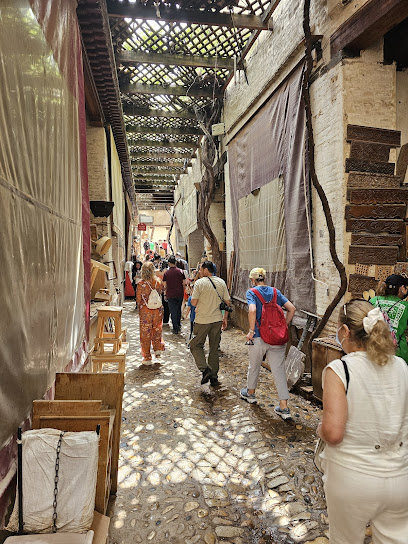
Hamza Tee Bar
Experience the vibrant atmosphere and authentic Moroccan hospitality at Hamza Tee Bar in the heart of Fes, a perfect spot for relaxation and socializing.

Snack cool cool
Discover a healthy dining oasis in Fes at Snack Cool Cool, where fresh ingredients and Moroccan flavors meet in a cozy atmosphere.

سلمى
Experience the vibrant nightlife of Fes at Salmâ, where traditional Moroccan drinks and modern cocktails blend seamlessly in a charming atmosphere.

Local Phrases
-
- Helloسلام
[salam] - Goodbyeوداعا
[wada'an] - Yesنعم
[naam] - Noلا
[la] - Please/You're welcomeمن فضلك
[min fadlik] - Thank youشكرا
[shukran] - Excuse me/Sorryعذرا
[aatharana] - How are you?كيف حالك؟
[kayf halik?] - Fine. And you?بخير. وأنت؟
[bikhir. wa ant?] - Do you speak English?هل تتكلم الإنجليزية؟
[hal tatakallam al'injlizia?] - I don't understandلا أفهم
[la afham]
- Helloسلام
-
- I'd like to see the menu, pleaseأريد أن أرى القائمة، من فضلك
[uridu 'an 'ara alqaimah, min fadlik] - I don't eat meatأنا لا آكل اللحم
[ana la aakul allahm] - Cheers!في صحتك!
[fi sahtik!] - I would like to pay, pleaseأود أن أدفع، من فضلك
[awadu 'an 'adfae, min fadlik]
- I'd like to see the menu, pleaseأريد أن أرى القائمة، من فضلك
-
- Help!النجدة!
[alnajdah!] - Go away!انصرف!
[ansarf!] - Call the Police!اتصل بالشرطة!
[atasal bialsurta!] - Call a doctor!اتصل بالطبيب!
[atasal bialtabib!] - I'm lostلقد ضللت الطريق
[laqad dalalt altariq] - I'm illأنا مريض
[ana mareed]
- Help!النجدة!
-
- I'd like to buy...أود أن أشتري...
[awadu 'an 'ashtari...] - I'm just lookingأنا فقط أتفرج
[ana faqat atafaraj] - How much is it?كم سعرها؟
[kam siroha?] - That's too expensiveهذا غالي جدا
[hadha ghali jiddan] - Can you lower the price?هل يمكنك تخفيض السعر؟
[hal yumkinuk takhfid alsir?]
- I'd like to buy...أود أن أشتري...
-
- What time is it?كم الساعة؟
[kam alsaa?] - It's one o'clockالساعة الواحدة
[alsaa alwahidah] - Half past (10)الساعة والنصف
[alsaa walnisf] - Morningالصباح
[assabah] - Afternoonالظهر
[adhdhuhr] - Eveningالمساء
[almasaa] - Yesterdayأمس
[ams] - Todayاليوم
[alyawm] - Tomorrowغدا
[ghadan] - 1واحد
[wahid] - 2اثنان
[ithnan] - 3ثلاثة
[thalatha] - 4أربعة
[arba'ah] - 5خمسة
[khamsah] - 6ستة
[sitah] - 7سبعة
[sab'ah] - 8ثمانية
[thamaniah] - 9تسعة
[tis'ah] - 10عشرة
[asharah]
- What time is it?كم الساعة؟
-
- Where's a/the...?أين هو/هي...؟
[ayn huwa/hiya...?] - What's the address?ما هو العنوان؟
[ma huwa al'awn?] - Can you show me (on the map)?هل يمكنك أن تريني (على الخريطة)؟
[hal yumkinuk 'an tureeni (ala alkhareetah)?] - When's the next (bus)?متى يأتي الحافلة القادمة؟
[mata yaati alhafilat alqadimah?] - A ticket (to ....)تذكرة (إلى...)
[tadhkirat ('iilaa...)]
- Where's a/the...?أين هو/هي...؟
History of Fes el Bali
-
Fes was founded in 789 AD by Idris I, the great-grandson of the Prophet Muhammad. Fes el Bali (Old Fes) emerged as the original city, distinguished by its medina, which became a center of Islamic scholarship and culture. The neighborhood's layout, characterized by narrow winding streets and bustling souks, reflects the urban planning of the time, designed to facilitate trade and community interaction.
-
During the 9th to 13th centuries, Fes el Bali flourished as a leading cultural and intellectual hub in the Muslim world. The establishment of the University of al-Qarawiyyin in 859 AD, recognized by UNESCO as the oldest existing university, attracted scholars, philosophers, and travelers. This period solidified Fes's status as a center of learning, resulting in architectural advancements and the creation of numerous madrasas and mosques.
-
In the 13th century, the Marinid dynasty took control of Fes, leading to a significant expansion of Fes el Bali. The construction of new mosques, madrasas, and the famous Bou Inania Madrasa in the 14th century showcased the architectural prowess of the era. The Marinids transformed the city into a fortified hub, enhancing its defenses and further establishing Fes as a prominent city in North Africa.
-
By the 17th century, Fes el Bali experienced a period of decline due to political instability and shifting trade routes. However, the 19th century saw a resurgence with the arrival of European powers and increased trade. Restoration efforts began, focusing on the preservation of the city's historical architecture and cultural significance, which laid the groundwork for Fes's recognition as a UNESCO World Heritage site in 1981.
-
In contemporary times, Fes el Bali faces challenges such as urbanization and tourism pressures. However, local initiatives aimed at preserving its rich cultural heritage are evident. The neighborhood remains a vibrant living museum, where traditional crafts, culinary arts, and festivals continue to thrive, reflecting the enduring spirit of the city and its people.
Fes el Bali Essentials
-
Fes el Bali is easily accessible from other neighborhoods in Fes. You can take a taxi or a shared taxi (grand taxi) to reach the medina from Fes Ville Nouvelle, which is about 3 kilometers away. Buses also run frequently, with routes connecting the main areas. If arriving by train, the Fes railway station is the closest, and you can take a taxi or a bus to the medina.
-
Fes el Bali is best explored on foot due to its narrow alleys and pedestrian zones. While bicycles are permitted in some areas, they can be challenging to navigate in the old medina. Taxis are available for longer distances, but be sure to negotiate a fare beforehand. Local buses run to various parts of Fes, but schedules may be irregular.
-
Fes el Bali is generally safe for tourists, but it is essential to remain vigilant. Pickpocketing can occur in crowded areas, especially near popular attractions like the Bou Inania Madrasa and the tanneries. Avoid walking alone at night in poorly lit areas and be cautious of overly friendly strangers who may lead you to tourist traps.
-
In case of an emergency, dial 19 for police assistance or 15 for ambulance services. The main hospital in Fes is Hôpital Al Arabi, located a short taxi ride away from the medina. Keep a list of local emergency contacts and your accommodations' address handy. It's also wise to have travel insurance to cover medical emergencies.
-
Fashion: Do dress modestly, particularly when visiting mosques and religious sites. Women should cover their shoulders and knees. Religion: Do be respectful of local customs; always remove shoes before entering homes or mosques. Public Transport: Do be polite and give your seat to elderly passengers. Don't eat or drink on public transport. Greetings: Do greet locals with 'Salam' (peace) and a smile. Eating & Drinking: Do try local cuisine and accept food offerings graciously. Don't refuse hospitality, as it may offend your hosts.
-
To experience Fes el Bali like a local, visit the souks early in the morning when they are less crowded and vibrant with vendors setting up their stalls. Engage with local artisans, especially in the leather and pottery workshops. Discover hidden gems by wandering off the main paths, and don’t hesitate to ask locals for directions or recommendations. Sampling traditional mint tea in a local cafe is a must for an authentic experience.
Nearby Cities to Fes el Bali
-
Things To Do in Meknes
-
Things To Do in Chefchaouen
-
Things To Do in Tetouan
-
Things To Do in Asilah
-
Things To Do in Tangier
-
Things To Do in Europa Point
-
Things To Do in Gorham's Cave Complex
-
Things To Do in St. Michael's Cave
-
Things To Do in Alameda Botanic Gardens
-
Things To Do in Queensway Quay Marina
-
Things To Do in Catalan Bay
-
Things To Do in Main Street
-
Things To Do in Gibraltar
-
Things To Do in Moorish Castle
-
Things To Do in Casemates Square









